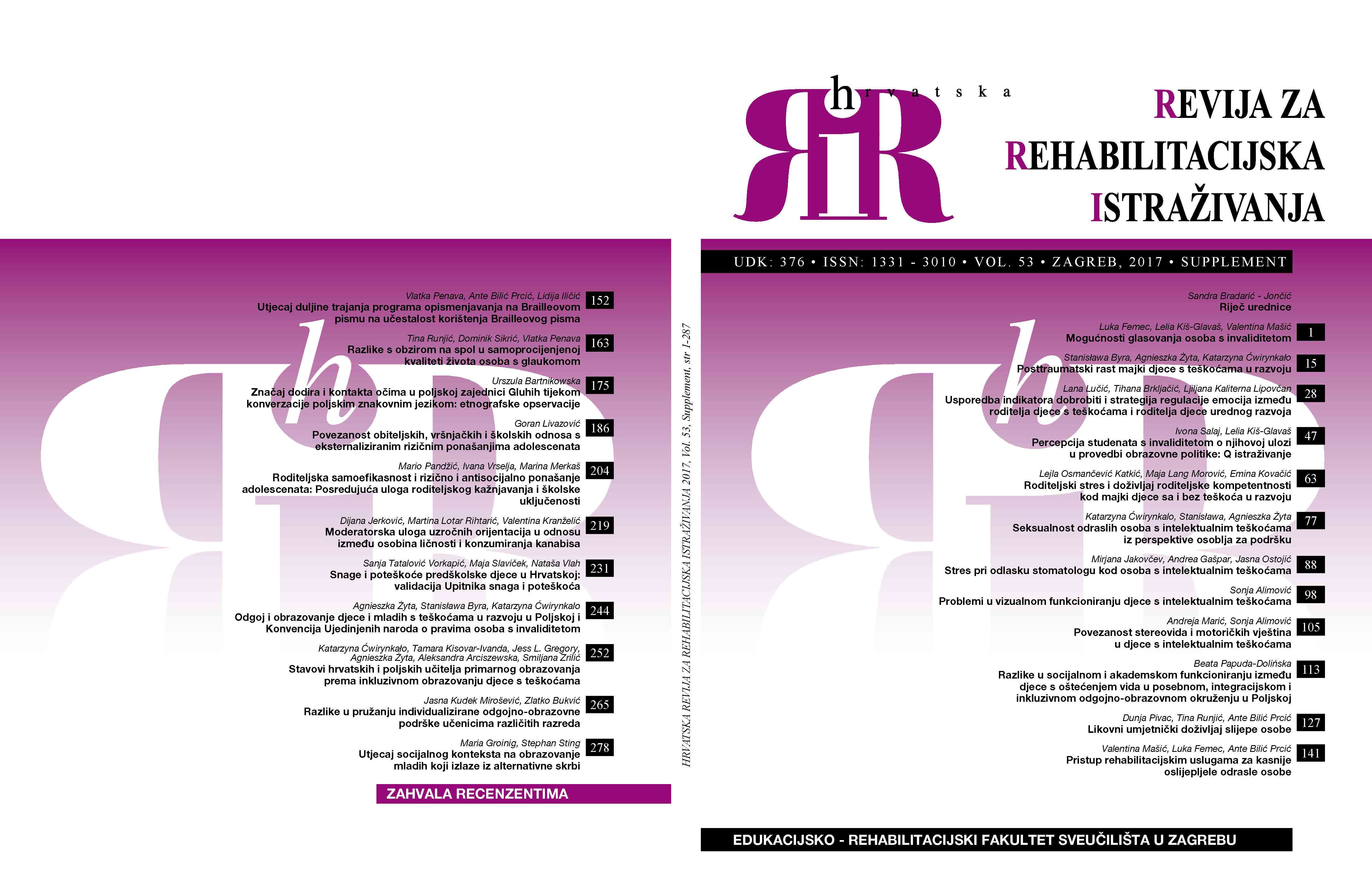Posttraumatski rast majki djece s teškoćama u razvoju
Posttraumatic growth in mothers of children with disabilities.
Author(s): Stanisława Byra, Agnieszka Żyta , Katarzyna ĆwirynkałoSubject(s): Social Sciences, Education, Psychology
Published by: Sveučilište u Zagrebu, Edukacijsko-rehabilitacijski fakultet
Keywords: mothers of children with disabilities; posttraumatic growth; coping; self-efficacy;
Summary/Abstract: The psychosocial situation of mothers of children with disabilities is most often analysed in the context of difficulties and support capabilities. Less frequently, it is analysed from the perspective of their personal resources. Posttraumatic growth (PTG) is a phenomenon that points to the constructive, positive consequences of traumatic events or radical life changes that require adaptation. Introducing a child with a disability into a family, and the ongoing stress of raising a child with a disability, can be particularly difficult situations that can promote PTG. The aim of this study was to determine the relationship between coping and self-efficacy and PTG in mothers of children with disabilities. The study included 96 mothers of children with autism and mothers of children with profound intellectual disabilities. The study was conducted using The Post-traumatic Growth Inventory, The Coping Orientations to Problem Experienced (COPE), and the General Self-Efficacy Scale. Regression analyses showed the predictive role of coping strategies (such as religion and focus on the problem) and self-efficacy in accounting for PTG variability in mothers of children with disabilities.
Journal: Hrvatska revija za rehabilitacijska istraživanja
- Issue Year: 53/2017
- Issue No: Supp.
- Page Range: 15-27
- Page Count: 13
- Language: English

